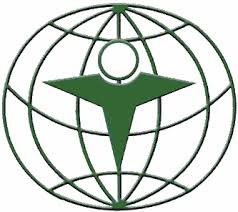In Canada, a variety of careers are in high demand, with registered nurses being one of them. Because Canada is in desperate need of nurses, the government has created work visas and immigration programs to help international workers achieve permanent residency in the country.
Different Types of Nurses in Canada
In Canada, there are three types of nurses:
Registered Nurses (RNs)
RNs are nurses who have earned a bachelor’s degree in nursing and are thus competent to work as General Registered Nurses.
Registered Psychiatric Nurses (RPNs)
RPNs are registered nurses with a bachelor’s degree in psychiatric nursing or a general nursing degree plus a post-graduate degree or extra studies in psychiatric nursing. The practice of RPNs is regulated in British Columbia, Alberta, Saskatchewan, and Manitoba.
Nurses who work as Licensed Practical
Nurses in Canada or Registered Practical Nurses in Ontario are known as LPNs.
LPNs are registered nurses who have completed a post-secondary nursing diploma program.
Which Canadian Provinces Are In Desperate Need Of Nurses?
The top four Canadian provinces with the highest need for qualified nurses are:
Manitoba
Manitoba is a Canadian province in the centre of the country, and it is one of the most in need of nurses. According to CBC News, Manitoba has had a significant shortage of nurses for several years. Since the Covid-19 outbreak, the number of nurses required in Manitoba has more than doubled.
New Brunswick
New Brunswick is a province in Canada.
Registered nurses, licensed practical nurses, and personal support workers are also needed in New Brunswick. In any official language, (English or French). There are job opportunities New Brunswick has made recruiting, supporting, and retaining these critical healthcare workers a top priority.
Nova Scotia
Nova Scotia is a province in Canada, also looking to fill a high number of nursing job openings since many nurses in the province are planning to retire soon.
Quebec
In the province of Quebec, nurses are likewise in high demand. In the new year, the province is collaborating with work permit programs to encourage immigrants to work as nurses in Quebec.
Anyone who wants to work as a nurse in Canada can apply for a work permit through programs like the Federal Skilled Worker Program, and if they are successful, they will be able to seek permanent residency in Canada.
Is It Possible For Foreign Nurses To Work In Canada?
If you’re a nurse in any place else on the globe, your desire likely is to work in Canada. If you’re wondering if foreign nurses may work in Canada, you’ve come to the right place.
Do you intend to work as a nurse in Canada? If that’s the case, you’ll want to learn about the procedure and follow the instructions correctly. There are several crucial measures that foreign nurses, must take to work in Canada are outlined here. This procedure has also been confirmed by nurses who are now employed in Canada.
Completing Your Immigration Process
If a nurse wants to work in Canada, he or she must first complete the immigration process. Often, you may complete the immigration procedure on your own. However, it is always preferable to seek the help of an immigration consultant. There are several well-known and reliable immigration consultants accessible. They’ll be prepared to assist nurses in gaining entry to Canada.
Having The Required Education And Knowledge
The educational requirements for foreign-trained nurses to work in Canada are as follows:
- You must have received your education from a recognized/approved institution in your own country.
- You must be registered as a nurse with your local nursing council and have a license as a registered nurse or midwife.
- With two to five years of expertise in the nursing profession, you’ll be able to process your immigration to Canada quickly.
Evaluation Of Credentials
- If your educational qualification meets Canadian standards, it must be reviewed.
- You’ll conduct a credential evaluation in your own country.
- The evaluation of nursing qualifications is conducted by recognized bodies in Canada. The National Nursing Assessment Service, or NNAS, will evaluate your credentials.
At this point, you must decide which province or state in Canada you wish to apply to. This is necessary because each state and province has its own set of eligibility and access requirements. They even have different needs. As a result, multiple criteria are used to evaluate credentials for varied requirements.
You must possess documents that foreign-educated nurses must submit to the NNAS they are:
- Passport/license driver’s or other photo ID with notarized signature
- Documents for education
- Certificates of completion
- Course curriculum (transcript)
- Other academic achievements
- The licensing authority must send the registration paperwork to the Nursing Council inside the country where they are already practising.
- Form for employment: Employers with whom you have worked in the last five years should fill out this form and send it to NNAS.
- The results of your IELTS / CELBAN tests.
- Before sending any document that is not in English or French, it must be translated into English.
- All copies of certificates must be notarized, together with the notary’s phone number and address.
- Pay the requisite fees (about $ 650).
How To Come To Canada As A Nurse
There are four main ways you can come to Canada as a nurse. They are listed below
- Through Express Entry
- Through Quebec Immigration
- Through Provincial Nominee Programs
- And through studies in Canada
Express Entry
Nurses have the 3012 occupational code, which comes under skill type A. If nurses complete the program’s standards, they may be eligible for Express Entry under the Federal Skilled Worker Program (FSW) or the Canadian Experience Class (CEC). Candidates must obtain at least 67 out of 100 potential points based on characteristics such as their education, age, work experience, and language proficiency to be considered for the FSW program.
Candidates who meet the minimal pass mark can apply to the Express Entry pool by submitting a profile. They obtain a Comprehensive Ranking System (CRS) score of 1,200 once they’ve entered the pool. Invitations to Apply (ITAs) for permanent residence are granted to the highest-ranking individuals in the Express Entry pool regularly.
One of the most appealing aspects of the Express Entry method is that there are no fees associated with submitting your application to the pool. If you receive an Invitational to apply, you will simply have to pay government processing fees and the Right of Permanent Residence Fee. If you are invited to apply for permanent residency, it may take as little as six months to process your application.
In Express Entry, the minimum IELTS score required for nurses is determined by the individual’s entire profile. To be qualified for Express Entry, you must score at least 6.0 in each of the four language abilities, although you may require a different score to meet the 67-point pass level.
Quebec Immigration
Eligible candidates can submit a profile to the Arrima site in Quebec, which uses a different point system. The Quebec government performs regular Arrima lotteries, in which candidates are invited to apply for permanent selection. In Quebec’s Arrima draws, nurses are frequently targeted.
If you are eligible for QSW and can apply, there are some benefits to the program over Express Entry:
- Your degree does not require an Educational Credential Assessment (ECA).
- You are not required to present proof of minimum settlement money.
Provinces Nominee Programs (PNP)
A Provincial Nominee Program is another possibility for nurses who want to immigrate to Canada. PNPs are immigration programs that are managed in collaboration between provincial and federal governments. Each Canadian province has its PNP with several streams, however, all PNPs lead to the same result: permanent residence in Canada.
Only candidates who are already in the federal Express Entry pool are eligible for some PNPs. Receiving a nomination from one of these PNPs adds 600 CRS points to your account. Many PNPs require some type of link to the province that operates them, such as family living there or previous education or employment experience in the province. Other PNPs are intended to fill skill gaps in the province by accepting talented employees with prior experience in in-demand occupations.
Study In Canada
Canada is a great place to study. You may be able to immigrate to Canada even though you are not now eligible for any of the immigration alternatives listed above. You can use your nursing degree to further your career as an international student while living, studying, and even working in Canada.
Your Canadian education may potentially improve your chances of being able to immigrate to Canada permanently once you graduate. Keep in mind that Canadian immigration programs are always changing, so there’s no way of knowing whether the eligibility criteria for any of the current programs will remain the same by the time you graduate. Under the existing system, however, a Canadian degree can make a huge difference and you can also obtain fully funded scholarships as an international student to study in Canada.
Job Opportunities Available for Nurses In Canada
Below are some jobs opportunity available to nurses in Canada.
- Long-term personal support worker
- Personal caregiver
- Personal care attendance
- Nurse aide
- Casual nurse
- Registered Nurse
- Home support worker
- Medical office assistant
- Laboratory clinical services program nurse
- Occupational health nurse
- Public health nurse and so on
Canada’s Living Costs
It’s pointless to make a lot of money if everything is expensive where you live, so let’s look at the overall cost of living to see how it compares to your own country and how much you can earn. In the country of Canada, A 20-year mortgage would be very easy on your paycheck, and if you have a partner with business skills, you could even make a 10-year mortgage plan.
The average price of a house in a Canadian city is $ 430,000, which means that a 20-year mortgage would be very easy on your paycheck. If you don’t want to buy right now, a room 2-bedroom apartment costs $ 900 per month on average. You can do the math if you earn $ 6,500 before taxes.
Finally, when it comes to taxes, you’ll pay 24.7 per cent tax, or around $ 19,690, on $ 79,715 per year. So you’re earning around $50,000 per year, but how far can you go with that?
FAQs
What are the requirements to work as a nurse in Canada?
To work as a nurse in Canada, you generally need to complete an assessment process through the National Nursing Assessment Service (NNAS) or the relevant provincial regulatory body. You’ll need to have a nursing degree or diploma, pass a language proficiency test (usually IELTS or CELPIP), and provide proof of nursing practice and education. Additionally, you might need to complete a Canadian nursing exam (NCLEX-RN) and meet specific provincial requirements.
Do I need to be licensed in Canada to work as a nurse?
Yes, you must obtain a nursing license from the provincial or territorial regulatory body where you intend to work. Each province has its own licensing requirements and processes. You’ll likely need to submit your educational transcripts, pass the required nursing exams, and fulfill any additional requirements specific to that province.
Are there opportunities for international nurses in Canada?
Yes, Canada often seeks internationally educated nurses (IENs) to fill nursing shortages. Many provinces have programs to facilitate the entry of IENs into the workforce. However, the process can be competitive and may involve an assessment of your education and experience to ensure they meet Canadian standards.
Can I work temporarily as a nurse in Canada?
Yes, you can work temporarily in Canada as a nurse through the Temporary Foreign Worker Program (TFWP) or International Mobility Program (IMP). These programs allow you to work for a specific period, often with a job offer from a Canadian employer. The length and eligibility criteria vary depending on the program and your qualifications.
Will my foreign nursing credentials be recognized in Canada?
Your foreign nursing credentials might be recognized in Canada, but you’ll likely need to go through a credential assessment process. Organizations like the NNAS help assess your education and experience to determine how they align with Canadian nursing standards. Some provinces might require additional courses or exams to bridge any gaps.
What’s the average salary for nurses in Canada?
Nurse salaries in Canada vary based on factors such as location, experience, and specialization. On average, registered nurses (RNs) in Canada can earn anywhere from $60,000 to $100,000 CAD per year. Specialized nurses and those with more experience might earn higher salaries. Keep in mind that these figures are approximate and can differ based on the province and healthcare setting.





